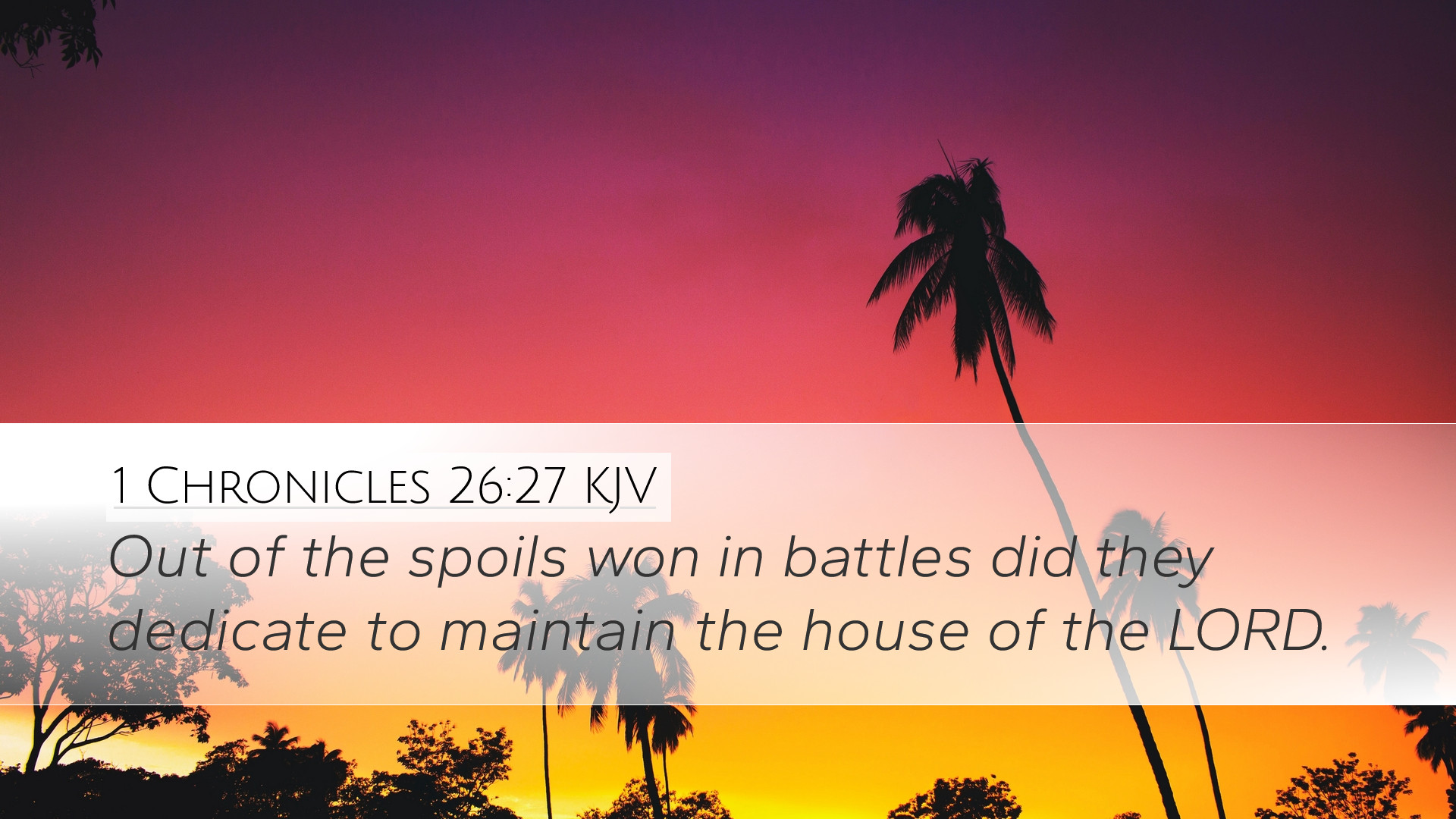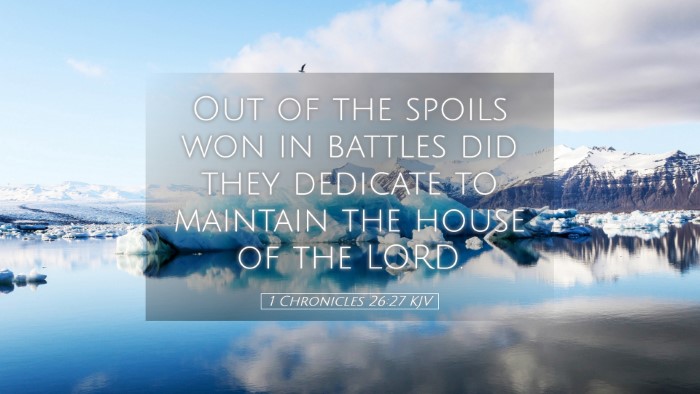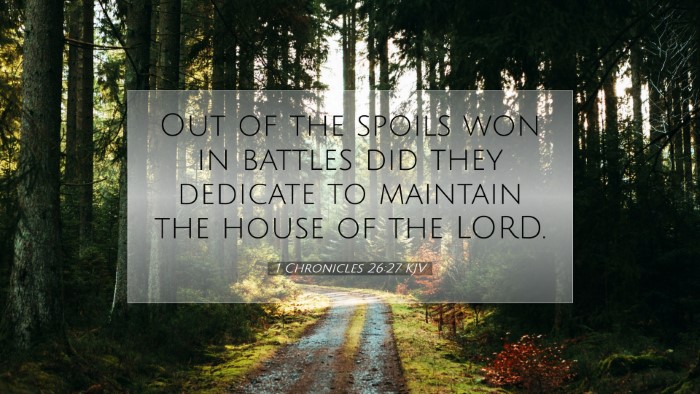Commentary on 1 Chronicles 26:27
Verse: 1 Chronicles 26:27 – "Out of the spoils won in battles did they dedicate to maintain the house of the Lord."
Contextual Background
The Book of Chronicles serves as a historical account of Israel, particularly focused on the lineage of David and the establishment of worship in Jerusalem. This verse is situated within a passage that outlines the arrangements made for the temple and the Levitical duties surrounding its maintenance and worship. It highlights the importance of dedicating material resources for divine service, emphasizing a theme of stewardship.
Insights from Matthew Henry
Matthew Henry emphasizes the significance of the spoils won in battles as a means of honoring God. He points out that the victories of Israel were not merely for personal gain but were intended to glorify God. The phrase "dedicate to maintain the house of the Lord" illustrates the profound principle of giving back to God what has been received through His grace. Henry notes that this act of dedication reflects a communal acknowledgment of God's sovereignty and support in times of trial.
- Stewardship: Henry stresses that the resources used for the temple were not taken from private individuation but were sourced from collective victory.
- Worship and Warfare: He connects the act of war with worship, suggesting that the same God who leads to victory should also receive the fruits of those victories.
Insights from Albert Barnes
Albert Barnes delves into the practical implications of this verse, noting that the spoils signify the blessings of victory under divine providence. He highlights that the dedication of these spoils not only provides for the physical needs of the temple but also serves as an act of communal obedience and gratitude.
Barnes elucidates several key concepts:
- Community Responsibility: This act reflects the community's unified effort to support the temple, reinforcing the idea that worship is a shared responsibility.
- Divine Providence: He notes the belief that all victories and resources stem from God's provision, urging a response of thankfulness through active dedication.
Insights from Adam Clarke
Adam Clarke offers a detailed analysis of the Hebrew terms used in this verse, suggesting that the act of dedicating spoils is indicative of a broader theological understanding of sacrificial giving. He interprets the concept of 'dedicating' as presenting to God the best of what is received – a practice consistent throughout Scripture.
- Theological Reflection: Clarke suggests that this practice mirrors New Testament principles of giving, where believers are called to offer their best to God.
- Implications for Worship: He sees this verse as a precursor to understanding the significance of sacrifice in worship, highlighting that acknowledgment of God's generosity calls for a reciprocal act of generosity.
Theological Significance
The importance of dedicating spoils to God aligns with the overall theology of the Old Testament, where material resources are viewed as extensions of one's spiritual life. This act signifies:
- God's Sovereignty: A clear acknowledgement that victories come from God, necessitating a response of gratitude.
- Community Cohesion: The act of collectively dedicating spoils reinforces the unity of Israel as a worshipping community.
- Holistic Worship: Emphasizes that worship involves every aspect of life, including material resources.
Application for Today
For modern readers—pastors, students, theologians, and scholars—1 Chronicles 26:27 provides valuable insights into the nature of stewardship and worship. The dedication of spoils can be viewed as a metaphor for how believers today are called to dedicate their own material blessings for the advancement of God's kingdom.
- Encouraging Generosity: This verse serves as a reminder for the faithful to be generous with their resources, recognizing that everything is ultimately from God.
- Community Engagement: It helps reinforce the idea that the life of faith is communal and encourages collective action in supporting the church’s mission.
- Worshipful Living: The concept of dedicating one's life, time, and resources to God's work resonates with the New Testament call to be living sacrifices (Romans 12:1).
Conclusion
In summary, 1 Chronicles 26:27 encapsulates critical themes of stewardship, gratitude, and communal worship within the framework of divine provision. The combination of insights from Matthew Henry, Albert Barnes, and Adam Clarke enriches our understanding of the text and encourages believers to act faithfully in their dedication to God's work, recognizing their role in the continuity of worship across generations.


